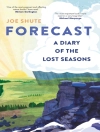New essays providing a in-depth view of the many facets of the great world poet’s work.
Friedrich Schiller is not merely one of Germany’s foremost poets. He is also one of the major German contributors to world literature. The undying words he gave to characters such as Marquis Posa in
Don Carlos and Wilhelm Tell in the eponymous drama continue to underscore the need for human freedom. Schiller cultivated hope in the actualization of moral knowledge through aesthetic education and critical reflection, leading to his ideal of a more humane humanity. At the same time, he was fully cognizant of the problems that attend various forms of idealism. Yet for Schiller, ultimately, love remains the gravitational center of the universe and of human existence, and beyond life and death joy prevails. This collection of cutting-edge essays by some of the world’s leading Schiller experts constitutes a milestone in scholarship. It includes in-depth discussions of the writer’s major dramatic and poeticworks, his essays on aesthetics, and his activities as historian, anthropologist, and physiologist, as well as of his relation to the ancients and of Schiller reception in 20th-century Germany.
Contributors: Steven D.Martinson, Walter Hinderer, David Pugh, Otto Dann, Werner von Stransky-Stranka-Greifenfels, J. M. van der Laan, Rolf-Peter Janz, Lesley Sharpe, Norbert Oellers, Dieter Borchmeyer, Karl S. Guthke, Wulf Koepke.
Steven D.Martinson is Professor of German at the University of Arizona.
Spis treści
Introduction: Schiller and the New Century – Steven D. Martinson
Schiller’s Philosophical Aesthetics in Anthropological Perspective – Walter Hinderer
Die Räuber: Structure, Models, and an Emblem – Werner von Stransky-Stranka-Greifenfels
Kabale und Liebe Reconsidered – James M. van der Laan
On the Shores of Philosophy: Schiller’s Later Lyric Poetry – Norbert Oellers
Great Emotions — Great Criminals? Schiller’s
Don Carlos – Rolf-Peter Janz
Concerning Aesthetic Education – Lesley Sharpe
Wallenstein – Dieter Borchmeyer
Maria Stuart: The Physiology of Politics – Steven D. Martinson
Die Jungfrau von Orleans – Karl S. Guthke
Wilhelm Tell – Karl S. Guthke
Schiller and Classical Antiquity – David V. Pugh
Schiller the Historian – Otto Dann
The Reception of Schiller in the Twentieth Century – Wulf Koepke
Schiller in America: His Reception from the Eighteenth to the Nineteenth Century – Steven D. Martinson
O autorze
STEVEN D. MARTINSON is Professor Emeritus of German at the University of Arizona.












